Managing ADHD without medication is hard but it was possible for me through multiple changes to my environment. This article is based on my own personal experience and should not take the place of medical advice as I’m not a doctor. But if you’re interested in how I manage my ADHD symptoms while still navigating the perils of life, please read on.
ADHD without Medication – Natural Strategies for Navigating Life
Doing ADHD naturally is a lot harder because it takes work and repetition. But for me, it was totally worth it. It’s an ongoing challenge but it’s led me down a path of health and well-being that I didn’t think would be possible. Here are the strategies that work for me:
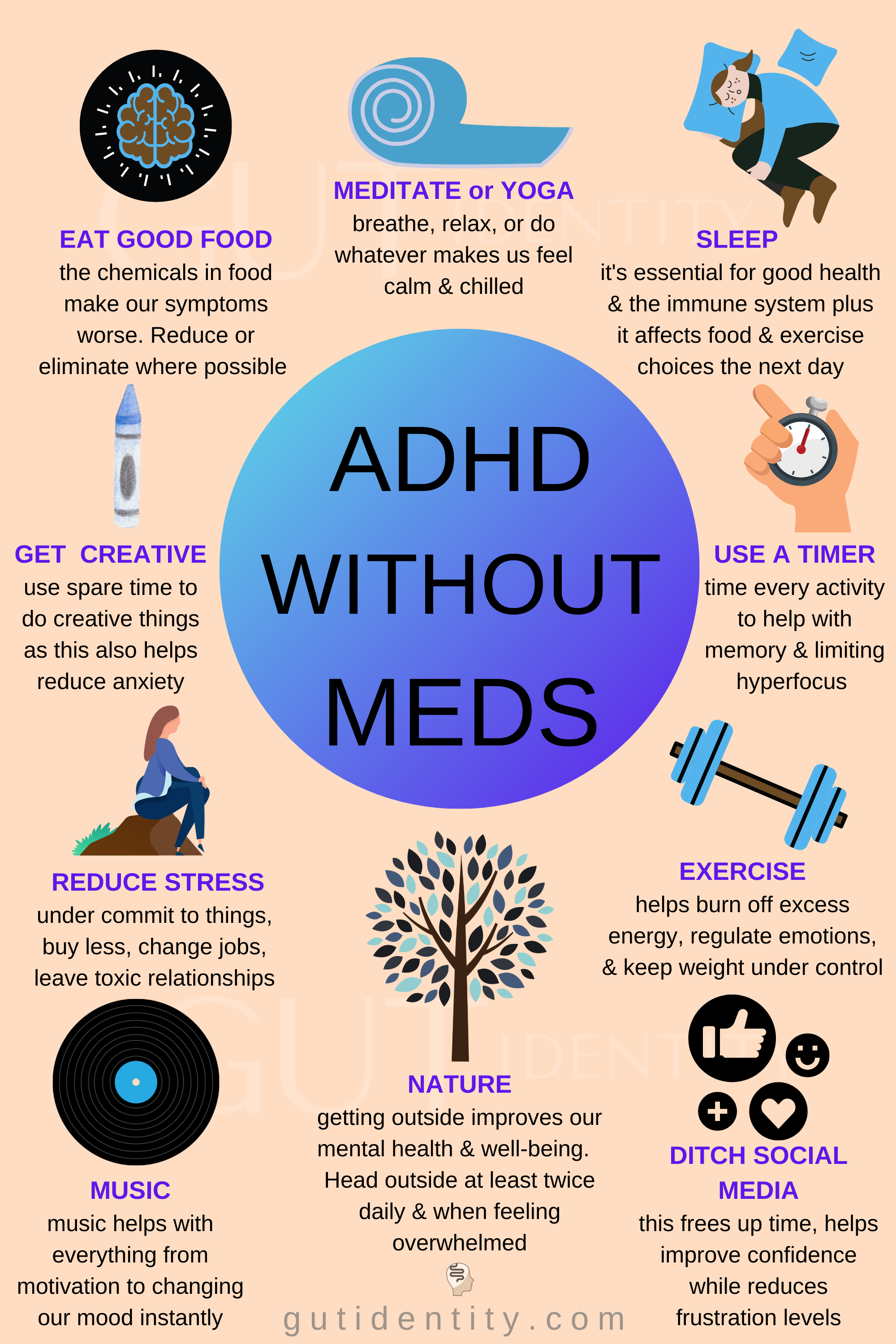
Sleep – shhhhhhhhh. It’s not a topic we like to talk about

The term ‘sleep hygiene’ makes me cringe to the core but sticking to a routine has definitely helped. Sleep has always been a sore talking point for me and I’ve tried just about everything. The one thing that has helped though is reducing stimulation at the end of the day.
Reducing my exposure to blue light has worked as I now don’t go near any devices after 6 or 7 pm. This includes watching anything. Instead, I listen to an audiobook, take a bath, listen to calm music and do yoga (well sort of stretching). I didn’t start doing this all at once. It was a process over time. Am I perfect? No. But I keep trying because limited sleep makes me feel like crap the next day so I’d rather do the work beforehand than constantly feel like poo.
If you’re keen on learning some more strategies about sleep, check out my eBook on sleep strategies for adults with ADHD. I create the information in bite-sized chunks to make it easy to follow so it’s not so overwhelming. The feedback I’ve received from my resources is that they also help provide motivation to make a start on changing behaviour or starting a positive habit.
Click the image below to get the Ultimate Adult ADHD Personal Development bundle. Available on Etsy.
It contains the following:
-
- 9 eBooks in total covering many different aspects to improve daily life and life skills, including strategies for sleep, nutrition, calming ideas, time-saving hacks, improving focus and concentration, learning to meditate, and tips for remembering stuff
-
- 1 daily planner checklist to help monitor progress on healthy habits
-
- 6 planners on personal development, changing limiting beliefs, and improving general health and well-being
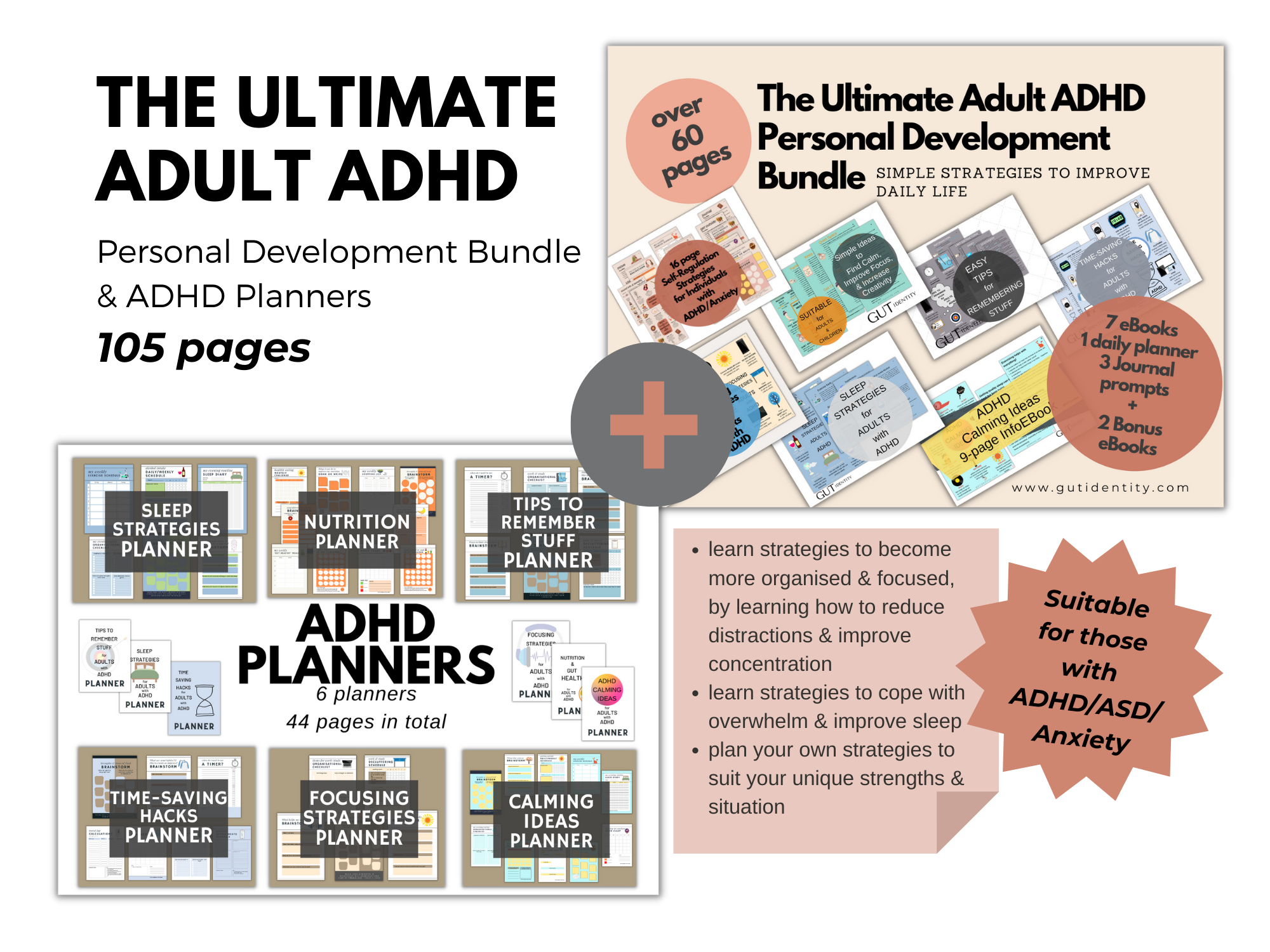
I Use a Timer (for everything)
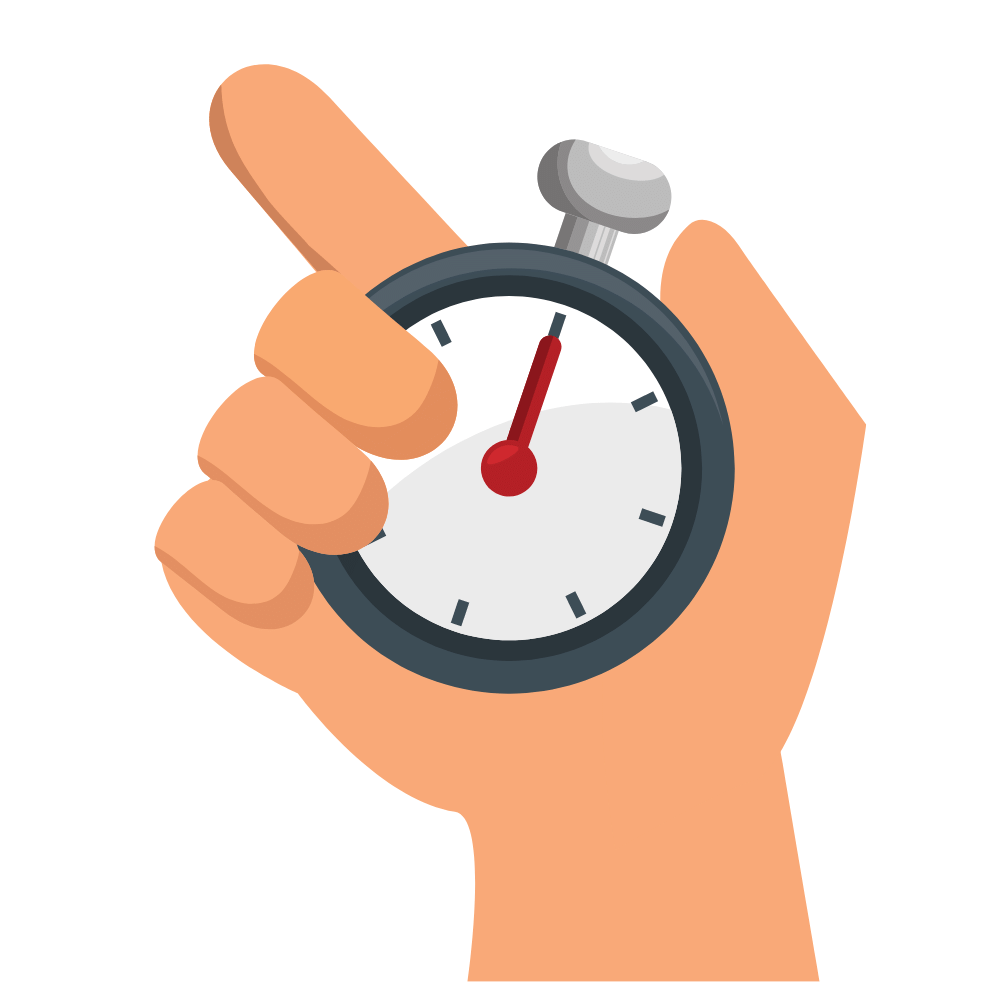
I would be lost without a timer. Time blindness happens on a regular basis when I don’t use a timer. Using a timer to manage ADHD symptoms is an absolute must. I use my phone timer as it’s most accessible but when I was a teacher, I had a range of other timers scattered around my workstation to use with my students. Between all of us, we managed to get the timers set and then stick to the time.
Using a timer also takes away the stress of when an activity is going to finish that’s why they work so well with children. There are no nasty surprises if the timer is visual.
Timers work well for non-preferred and preferred activities. Hyperfocus is a great thing when we love doing a task but even if this is something that is constructive, we still require and should take regular breaks. That’s where the timer comes into play. Schedule in breaks so that work slots are productive. We get more focused time this way and still get breaks. If you’re like me and could work for hours on the things you love, set that timer so you look after your body and brain first. They’ll thank you for it later.
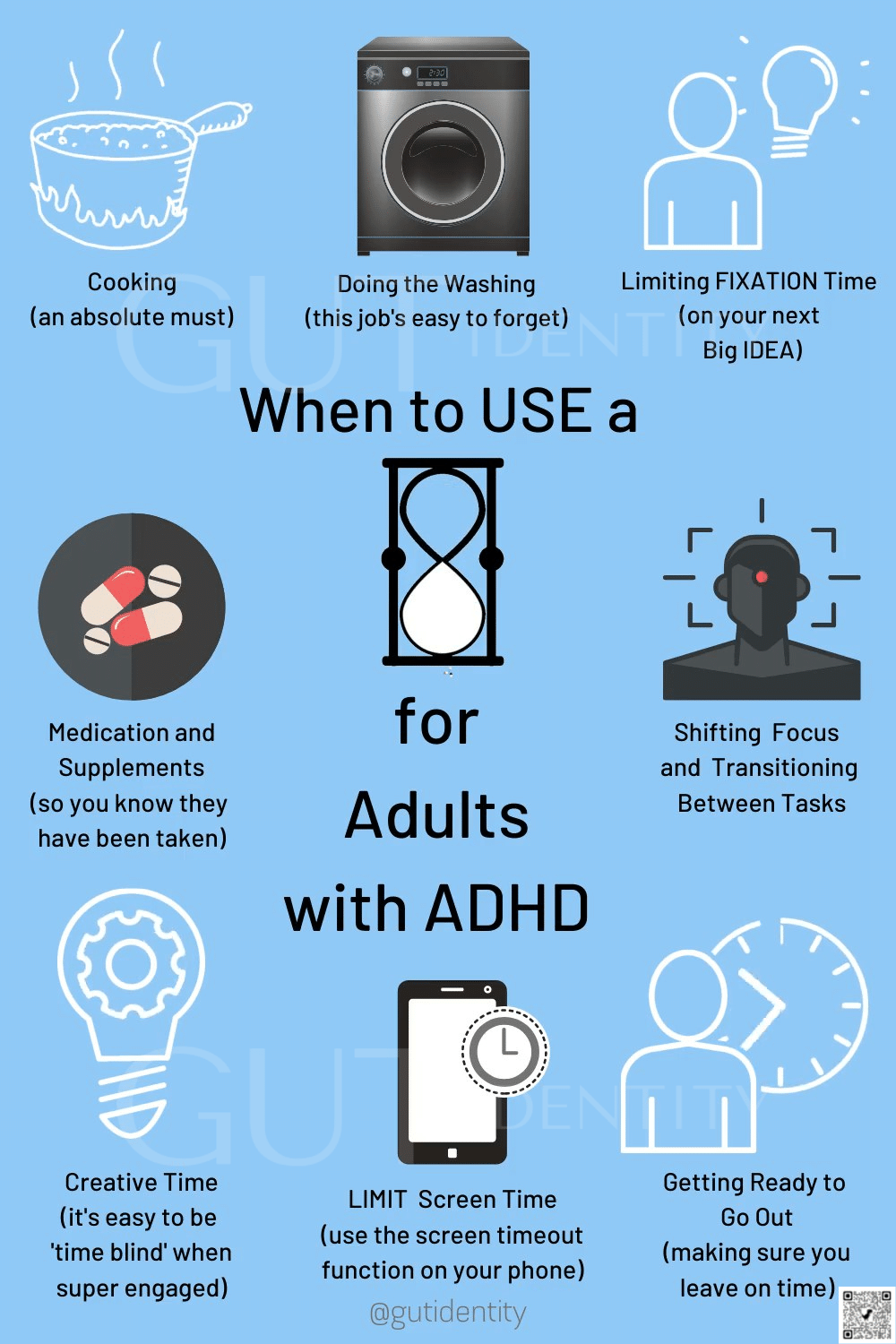
Exercise to burn off my excess energy

I exercise a lot, and I mean A LOT!!! This is my top strategy for releasing the excess energy I have. For anyone with the hyperactivity component of ADHD, excess energy is a problem. I can’t sit still for long so having regular breaks helps. Even if it’s something I’m enjoying or hyper-focusing on, I make sure movement is an essential component of my day.
My day starts with an hour’s walk if the weather is fine. This is always in some form of nature. I find nature extremely calming (hence why it’s in a large majority of my video and static infographics). Whether it’s a local park or a place with water, I head there regularly as it makes me feel calm. I also do strength and resistance training for 30 minutes, 5 times a week. This has been a game-changer for me in terms of building up my confidence. I also head out for a second long walk later in the day. Walking helps me feel calm and it’s also a great time for me to boost my creativity, and connect with nature.
The excess energy we get from the hyperactivity often presents itself as anxiety or nervous energy. Our bodies weren’t designed to sit for long periods so any form of movement is essential. As a kid, I used to love climbing trees and I did every sport imaginable. I was constantly on the go and that hasn’t changed as an adult but I have to be extremely self-disciplined as there are plenty of sedentary things that can also keep me in one spot if I’m not paying attention to my own behaviour. Exercising a lot also helps keep my weight stable, makes me feel healthy, and increases my muscle mass which helps burn fat.
Ditching Social Media – the best move I’ve made
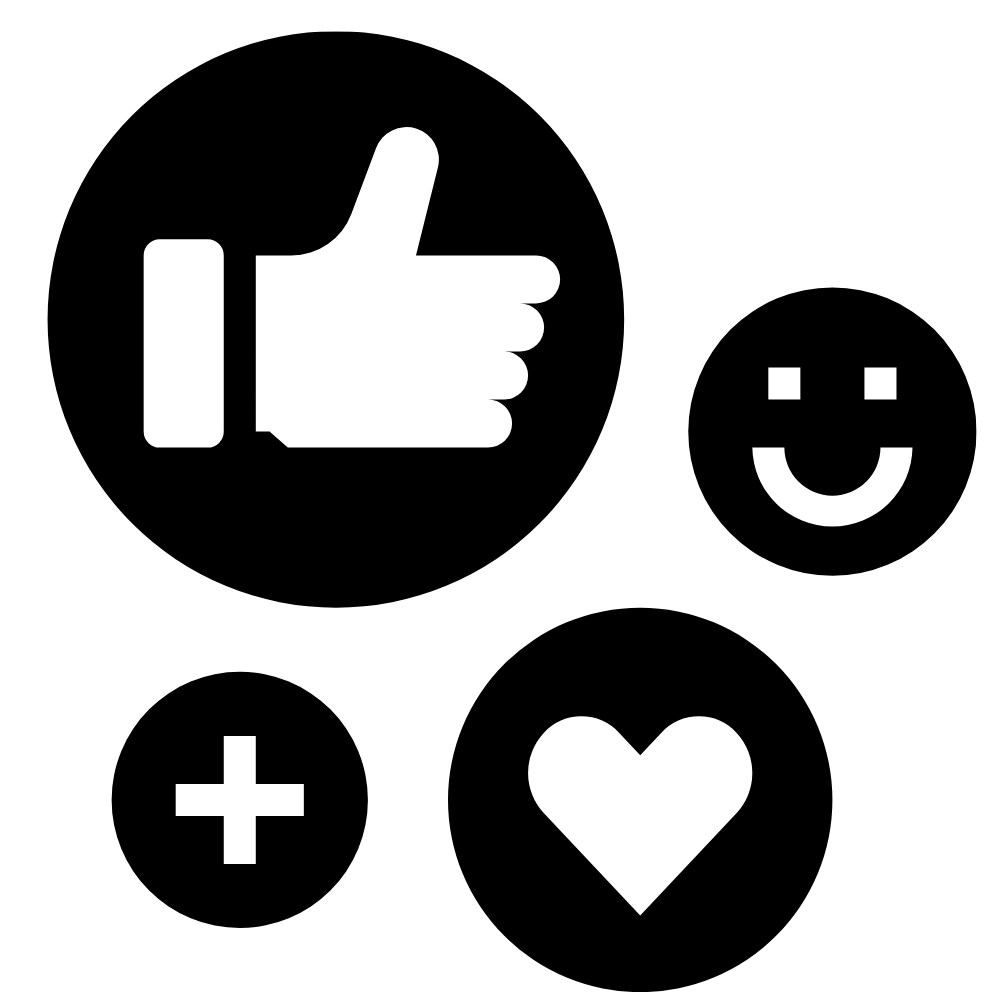
Ditching social media helped my symptoms because it was making my anxiety worse. It also had a good knock-on effect for self-control because I took the stimulus away thus reducing my opportunity to engage in it. I think social media is damaging in so many ways – my opinion of course. One of my top reasons for disliking it so much is that it’s so fake. But its fakeness is not the real concern for me. It’s the toxic nature of this form of media that really has me concerned. It would make me feel angry and leave the space with a feeling of ick so I knew it couldn’t be good for me. In my eyes now, anything that doesn’t leave me feeling energised and good after the act, is not worth spending my time on. For anyone with ADHD, social media can cause hours to go by before we know it.
After ditching social media, I now have more time to spend on the things I enjoy and actually can benefit from – my own blog and doing my own content for my own platform!
Find out my other reasons for ditching social media in the related blog post below.
Related Post – Why I Ditched Social Media
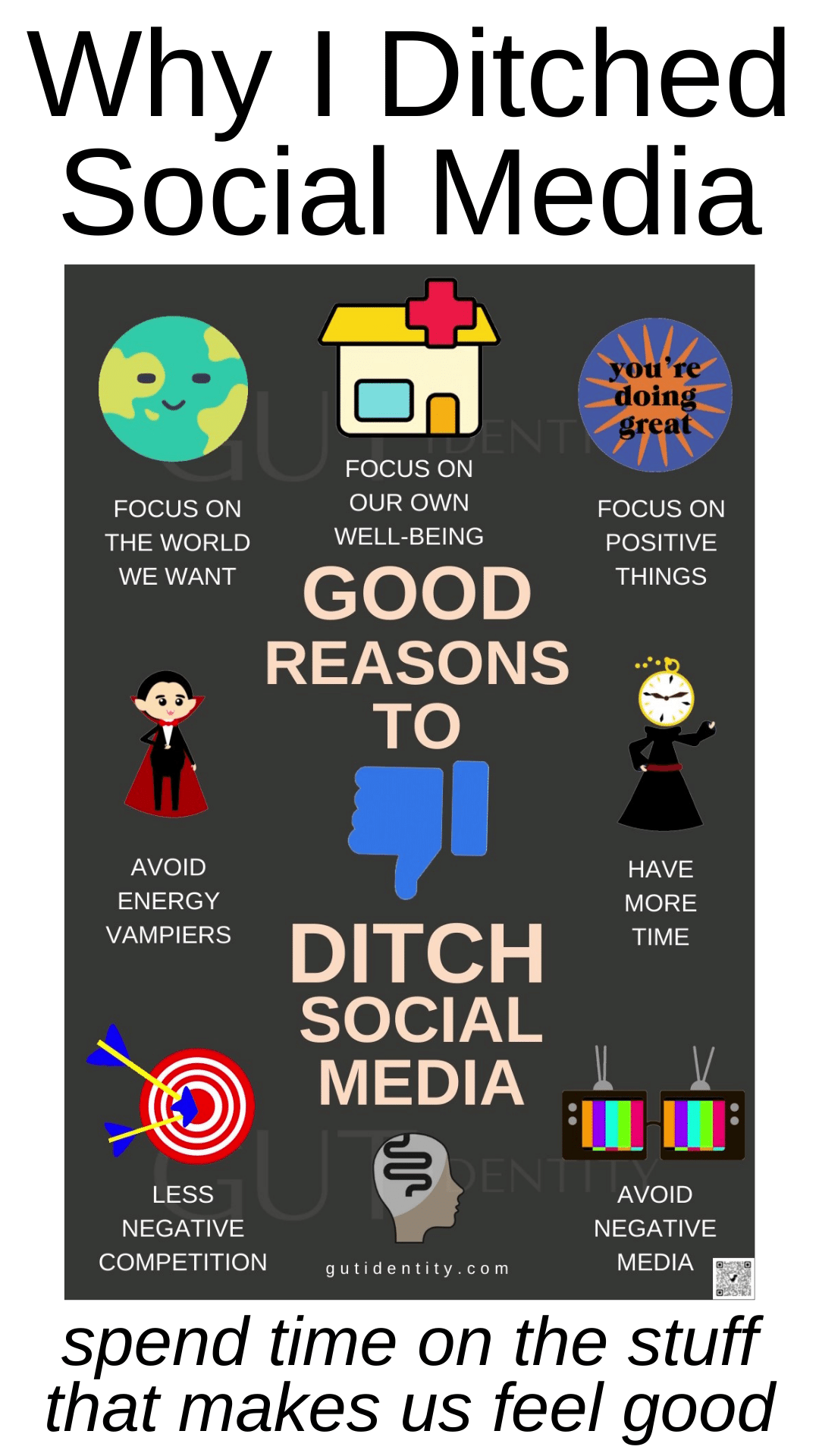
Heading out to Nature to manage ADHD symptoms – self-regulation for emotions & excess energy

I can’t stress enough just how much nature helps with managing ADHD symptoms. Nature helps with alleviating feelings of overwhelm, increases our exposure to the sun which helps our body produce vitamin D, and just makes us feel better when we’re outside.
When I was a teacher, my students experiencing overwhelm used to make a B line for outside. I don’t reckon that this was just to escape the classroom. I also taught plenty of children with Autism who gravitated quite naturally to the outdoors.
If you haven’t tried using ‘being in nature’ to help regulate your emotions or energy levels, give it a try. It’s free and it doesn’t have to take hours. Try it for a week to see if there’s a difference in how you feel. I couldn’t live without a daily dose of nature and all that it provides. I just feel better outside 🙂
Music, music, music for everything and anything
Music is a must-have tool in any ADHD toolbox. It’s good for almost every activity or chore we do.
Tip – Have playlists set up for different activities. I even put a song on for making my bed and try to finish the bed-making before the song ends. This is a great strategy to teach children and to get them doing their chores and helping out from a young age. The more we do it, the easier it becomes. Make things a habit.
Reducing as much stress as physically possible
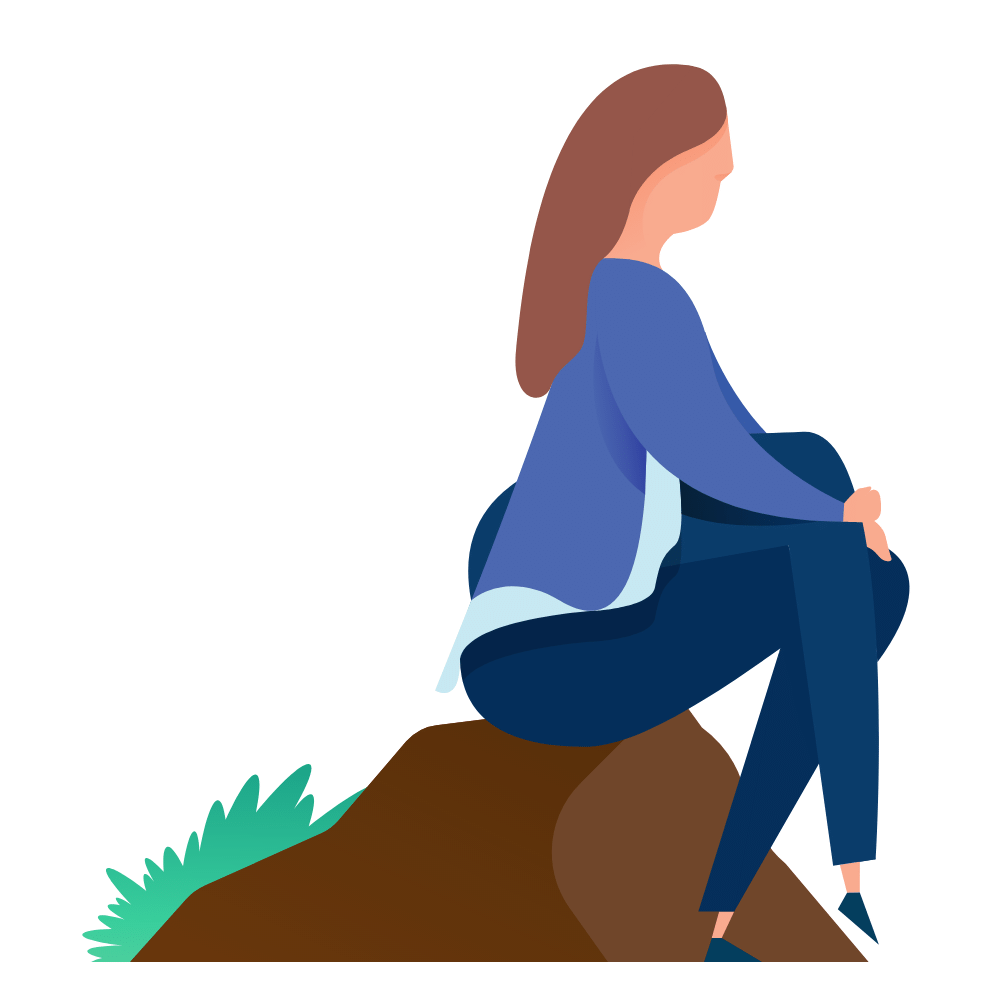
Take yourself into a time-out. But a time-out on your terms! Reducing as much stress as possible is an absolute must. Stress makes ADHD symptoms worse. One of the best ways to reduce stress is to under-commit to things. We’ve grown up with being busy being portrayed as the norm. Do less and buy less too as every single thing we buy takes energy to look after. If we have less stuff, we have fewer things to tidy and clean so the reduction in stress can be reduced dramatically.
Go to work, do heaps of work, feel stressed out, come home to relax by doing some not-so-healthy things. Then we push repeat. But what is all this for apart from a life of stress and angst that usually results in performing behaviour that then creates more stress? We’re all responsible for our own actions so it’s only us who can put the limits on….. ourselves. We have to make a decision about what’s really important in our lives.
Removing anything toxic from our lives can help how we feel. This includes toxic environments and people. Toxic environments and situations can have a disastrous effect on our health. This isn’t just our mental health, when our mental health deteriorates, our physical health follows. Again, if a situation doesn’t make us feel good after it, it could be toxic. Evaluate how you feel after each interaction you have. If it’s toxic, it’s not worth our health!
pouring myself into creative projects

Individuals with ADHD seem to possess a lot of creativity. I love being creative myself and I’ve worked with many individuals with ADHD over my teaching career who have amazing skills in a number of creative areas.
To help manage my symptoms, usually the need to take away from the overthinking about the crazy stuff going on today, I throw myself into what I love doing – this! Making video infographics is a creative outlet for me and provides me with self-relief. It not only helps me in the moment, but it also gives me the opportunity to help others at the same time.
If you’re unsure about what creative talents you might have, allow yourself the time to explore things. Think about what you liked doing as a child, what you enjoyed. Often we are good at stuff when we’re young and then we stop doing stuff when we get older out of fear of what others might think. Don’t worry about what others think of you, do it anyway as it may just end up helping other people. I think if I can help just one other person with ANYTHING, job done. If it helps two people, that’s bloody awesome!
Reducing the chemical load to help reduce brain fog
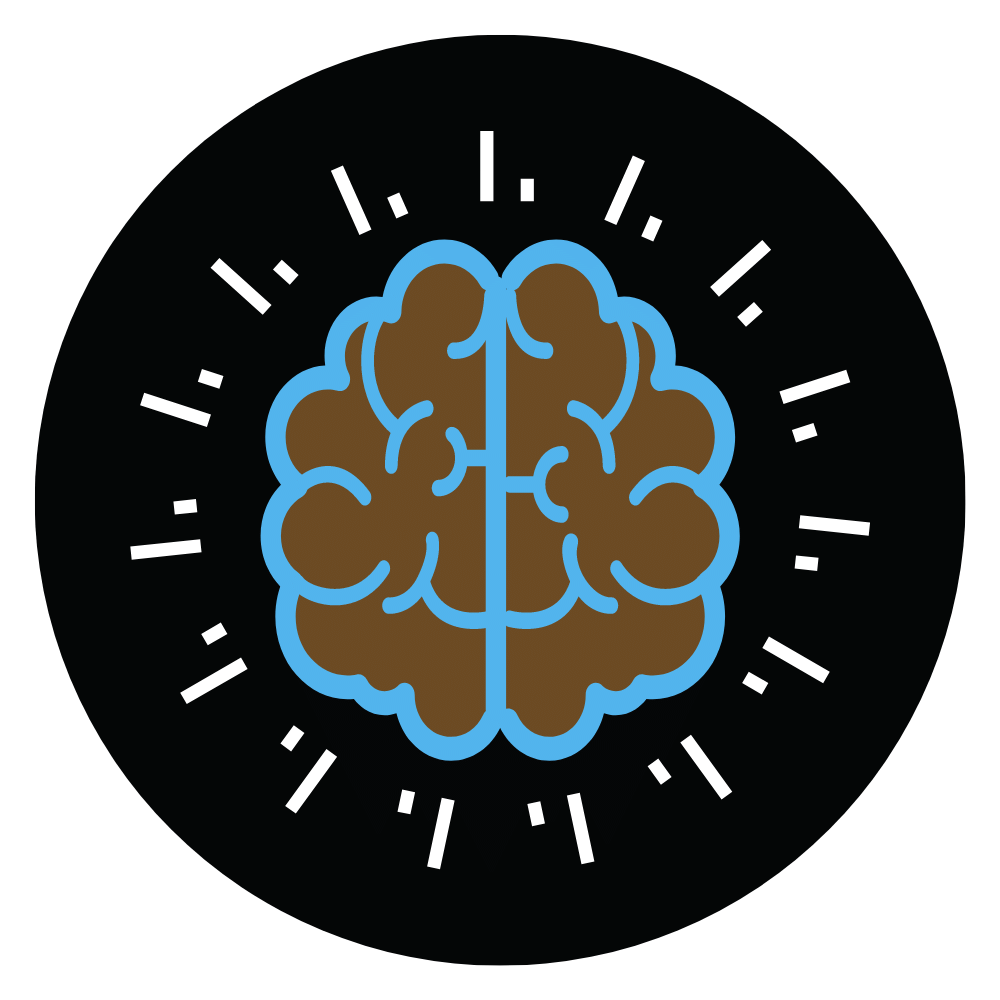
There are so many chemicals in our food and in our environment. There’s too much to go into detail here in this post but watch this space. What I do know though, is that the chemicals put into our food have addictive properties. They’re created that way for a reason, to keep us coming back for more.
If there’s something I love, it’s sugar. I have to avoid it but it’s hard. I do know that it makes my body feel inflamed and gives me incredible brain fog. But even though I feel like this, I still want to go back for more and it takes a concerted effort to avoid it.
I have to avoid gluten because I have coeliac disease (one of the best things that have happened to me because it helped change my life for the better) but in other gluten-free food, usually a bunch of other stuff is added instead. Because of this, I try to eat as many whole foods as I can to avoid reading labels and to avoid artificial sweeteners, colours and flavours. These substances can wreak havoc with our gut which then affects our brain. I can’t speak for anyone else, but I know that if I don’t have these chemicals in my body, I can focus better and feel like I have less brain fog.
Seeing a really competent nutritionist helped me heaps because I was made accountable for what I was eating. It was worth the cash put it that way.
Finding a variety of ways to relax & recenter myself

Relaxing is just like music, it’s a personal thing and we all have to do what’s right for us and our situation. I meditate and do gentle yoga to help me relax and you’ll be able to see that many strategies overlap. I guess that’s because they work. They are natural and they are easy but they’re also things we have to keep doing. They don’t work so well if we do them one-off or just on an ad-hoc basis. Check out my other posts for a list of relaxation strategies that work for me.
Bottom line
Do YOU!!!! What works for me may not work for you. RESEARCH! Spend the time researching strategies. That’s what I do. It’s how I spend my time because I want to have the best life possible. Do what works for you and always seek help if you need it from a medical professional.
Further Information
Check out my store on Etsy for an eBook I created that puts what I do into small manageable chunks. I’ve tried to create it in a way that’s it’s not too overwhelming but because we’re all different, my suggestion would be to just take a few ideas and implement them.
Click the image below to go straight there to check it out!
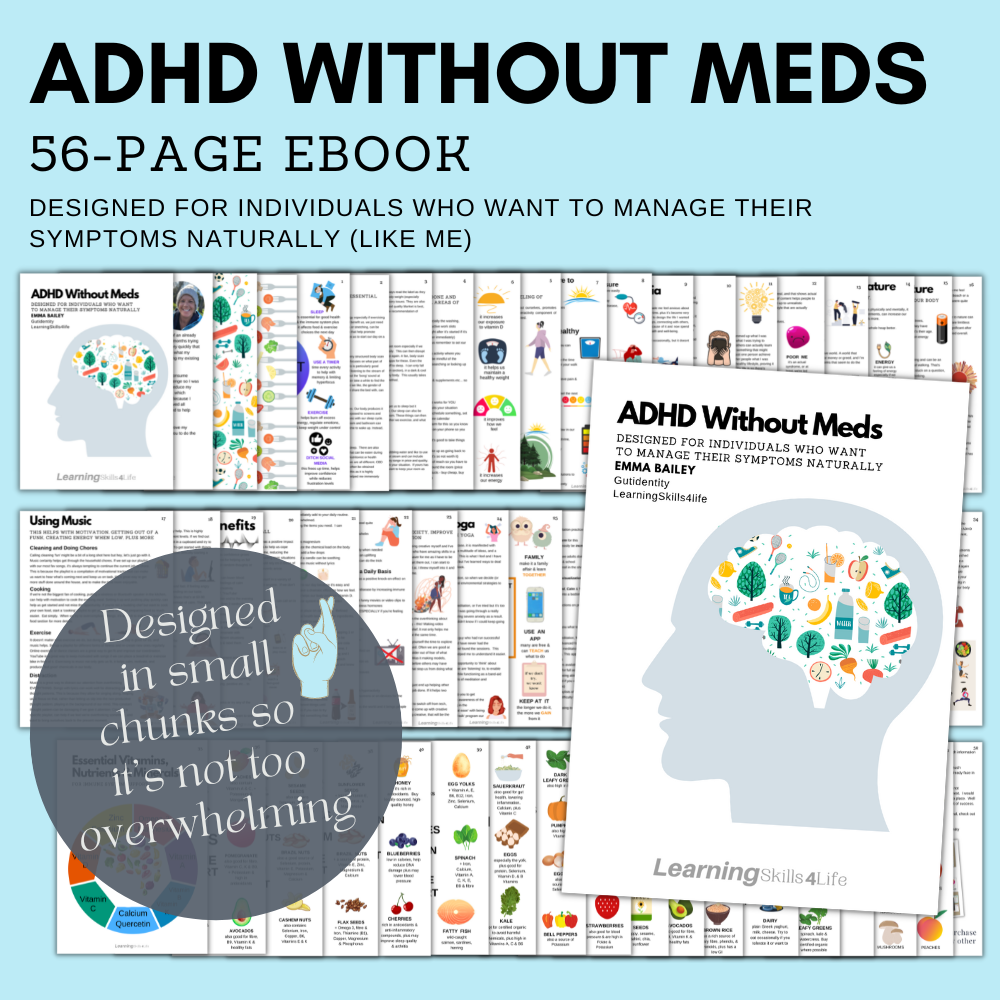
Disclaimer: I am not a Doctor and I went off my medication under the supervision of a Doctor, Psychiatrist, Psychologist and nutritionist. ALWAYS seek medical advice BEFORE making ANY changes to your medication or lifestyle.

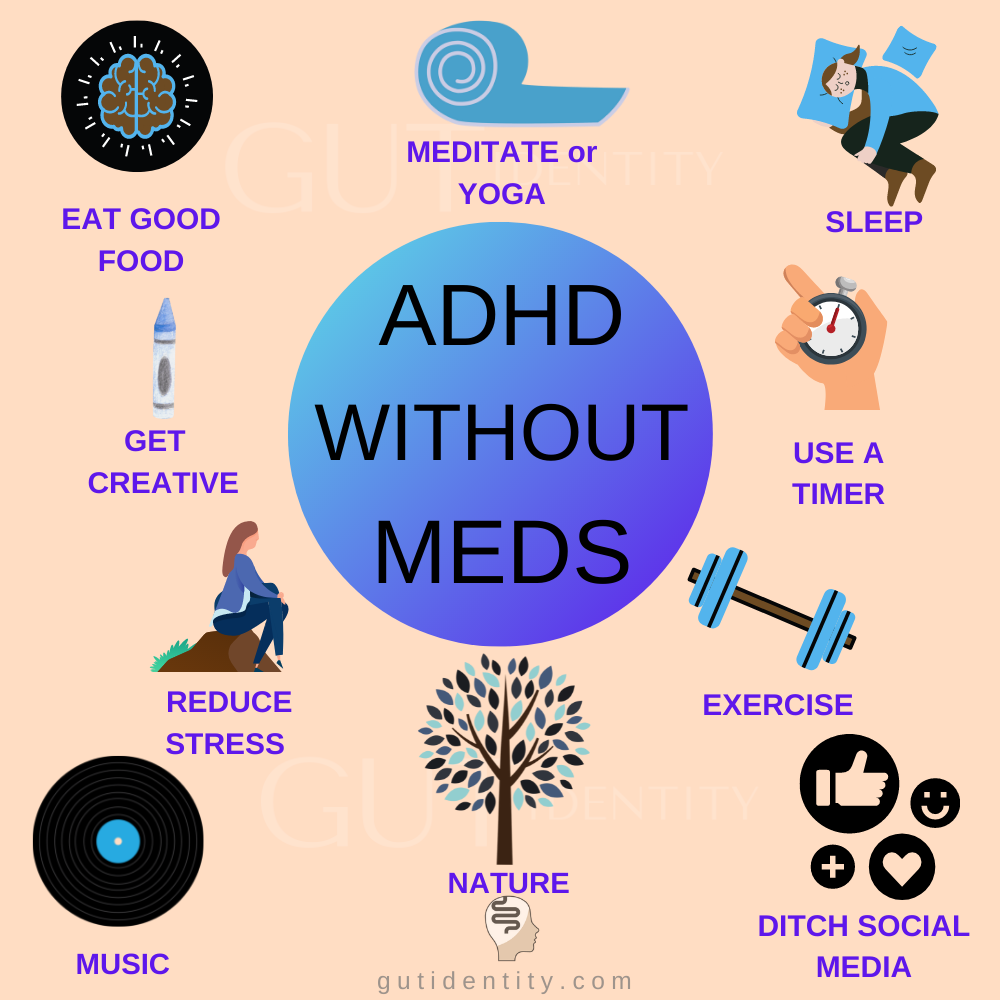
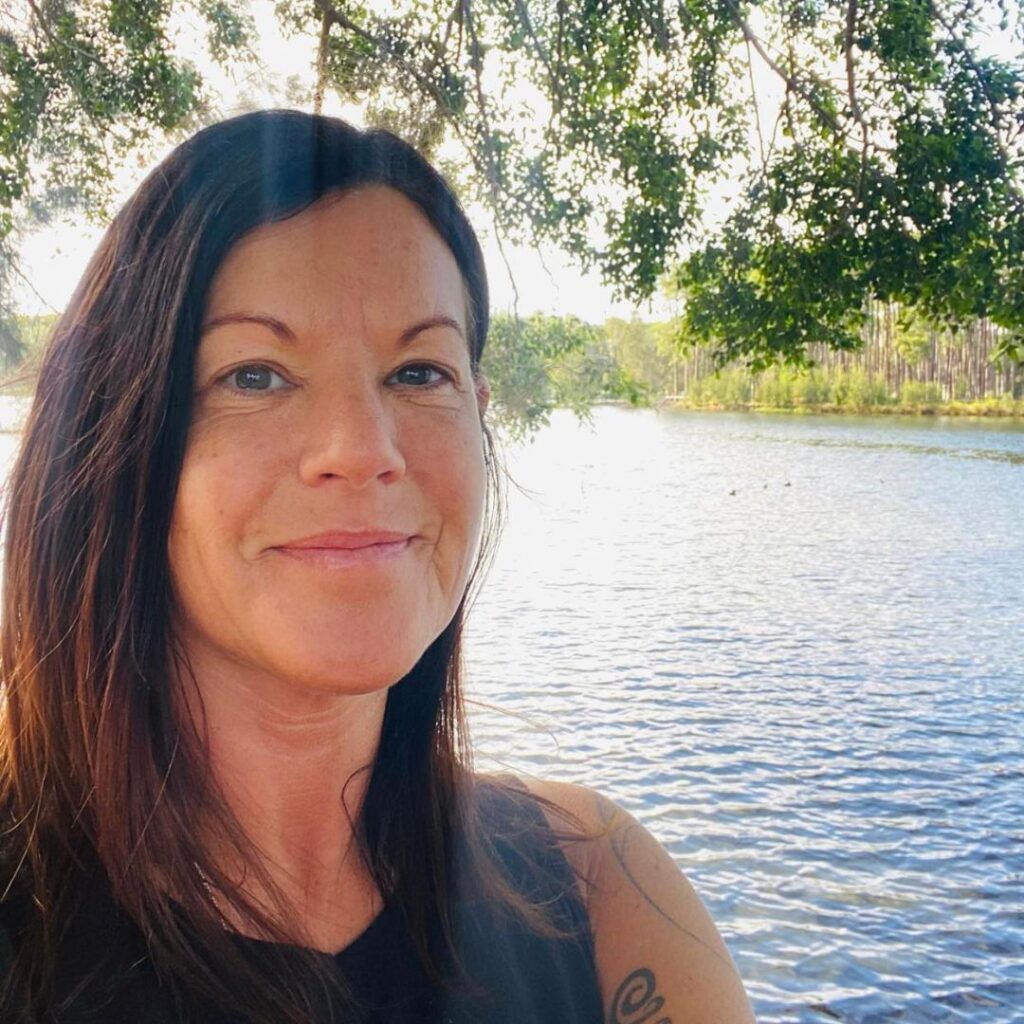

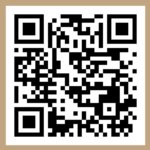
This is a brilliant post – as an adult with possible/ undiagnosed adhd, all of these ideas inspired me to deal with how I feel and goings I find hard to manage. Thank you for sharing your ways of coping!! 🙂
You are welcome Jill. Thanks for your feedback. I’m so glad you find it helpful. All the best in your journey,
Emma
This is inspiring, thank you x
Thank for you such lovely feedback!
I think we could be twins, down to the Celiac diagnosis. Thanks for sharing this. I am 55 and finally realizing just how ADHD I am.
Hi Jennifer, Yes it certainly is a double whammy making life a bit more complex that’s for sure. It’ definitely all related from my experience. Thanks for commenting. Emma
Pingback: How to Manage ADHD Without Medication – Gutidentity – Your Ideas Matter
Pingback: How to Manage ADHD Without Medication – Gutidentity – ADHD – My Blog